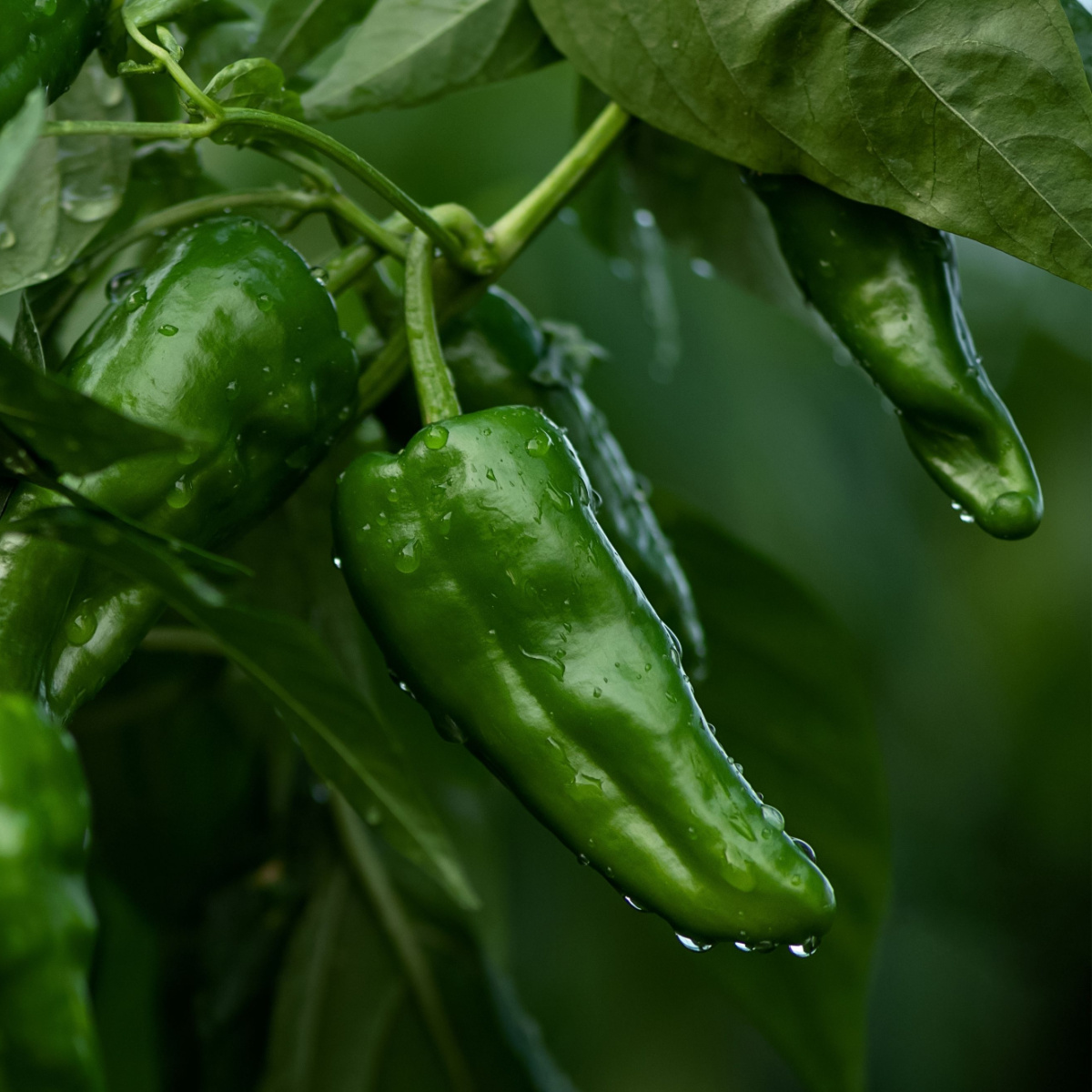Best Fertilizers for Peppers: Achieve Superior Results in Your Garden
Best Fertilizers for Peppers: Achieve Superior Results in Your Garden
Blog Article
Organic Vs. Synthetic Fertilizers: Which Is Best for Nurturing Healthy And Balanced Pepper Plants?
In the world of nurturing healthy and balanced pepper plants, the choice between organic and synthetic fertilizers stands as a pivotal choice with significant ramifications. While both options aim to provide essential nutrients to sustain plant development, the nuances of their influence on the dirt, plant health and wellness, and the environment trigger an argument that echoes throughout the gardening community. Understanding the distinctive benefits and prospective mistakes of each plant food type is crucial for pepper farmers looking for to maximize their yields while maintaining an eco-conscious and sustainable technique.
Benefits of Organic Plant Foods
Organic plant foods supply a lasting and environmentally-friendly approach to nourishing pepper plants, providing important nutrients without the use of synthetic chemicals. These all-natural fertilizers are stemmed from organic sources such as garden compost, manure, bone meal, and algae, promoting soil health and wellness and biodiversity. Unlike synthetic plant foods, organic options release nutrients gradually, ensuring a constant and balanced supply for pepper plants to thrive.
One considerable benefit of organic fertilizers is their ability to improve dirt structure and water retention. By boosting soil wellness, organic plant foods promote advantageous microbial task, which helps in nutrient uptake by pepper plants. In addition, organic fertilizers minimize the risk of chemical run-off, protecting water resources from air pollution and guarding the environment.
Moreover, natural fertilizers contribute to long-lasting soil fertility by advertising the growth of valuable dirt organisms. These microorganisms aid break down raw material, releasing nutrients in a type that is quickly accessible to pepper plants. best fertilizers for peppers. By promoting a healthy and balanced soil environment, natural plant foods sustain sustainable pepper farming practices that benefit both plants and the atmosphere
Drawbacks of Synthetic Plant Foods
Artificial plant foods, unlike their natural counterparts, position various downsides when utilized to nourish pepper plants, impacting both plant health and wellness and ecological sustainability. One major downside of artificial plant foods is their tendency to seep nutrients from the soil promptly. This quick leaching can cause vitamins and mineral discrepancies in the dirt, triggering plants to struggle with poisonings or shortages. Furthermore, artificial plant foods can hurt helpful soil microorganisms, such as earthworms and helpful germs, disrupting the dirt ecosystem's equilibrium.
In addition, the overuse of artificial fertilizers can contribute to water pollution. Excess plant foods not taken in by plants can get rid of right into water bodies, causing eutrophication, where algae blooms deplete oxygen levels in the water, damaging water life. get redirected here Synthetic plant foods are usually derived from non-renewable sources, such as fossil gas, adding to carbon emissions and ecological destruction throughout their manufacturing.
Nutrient Absorption Contrast
When contrasting natural and synthetic fertilizers in terms of nutrient absorption, natural fertilizers have the benefit of supplying a more well balanced and slow-release source of nutrients. Organic fertilizers have a variety of macro and trace elements that are not only beneficial for the plants yet additionally promote healthy soil microbial task, which aids in nutrient uptake.
Additionally, natural plant foods boost soil framework and water retention capacity, enabling pepper plants to gain access to nutrients extra efficiently. This enhanced dirt top quality promotes origin advancement, making it possible for far better nutrient absorption. Artificial fertilizers, although at first enhancing plant development as a result of their high nutrient concentrations, may impede long-term nutrient absorption by degrading soil health and wellness with time.
Ecological Effect Factors To Consider

On the various other hand, artificial plant foods, although commonly even more promptly offered and concentrated to plants, can have destructive effects on the atmosphere otherwise used properly (best fertilizers for peppers). Their manufacturing calls for high energy inputs, causing greenhouse gas discharges and adding to environment modification. In addition, the overflow of excess artificial fertilizers can pollute water resources, resulting in eutrophication and damaging aquatic environments.
Ideal Plant Food Practices for Peppers
To achieve this, it is crucial to follow finest plant food practices tailored to the specific needs of pepper plants. One crucial practice is to perform a soil examination prior to using any kind of plant foods.
Another essential technique is to feed pepper plants at the best time. Normally, peppers gain from receiving fertilizer at planting and then once more when they start to flower. Over-fertilizing can result in nutrient inequalities and hurt have a peek at this site the plants, so it is important to comply with suggested application prices.
Additionally, choosing a balanced fertilizer with an NPK proportion that fits pepper plants' demands is fundamental. Ultimately, incorporating artificial and organic plant foods judiciously can assist nurture healthy and balanced pepper plants while minimizing ecological influence.
Conclusion

Organic fertilizers offer an environmentally-friendly and sustainable technique to beneficial pepper plants, giving necessary nutrients without the use of synthetic chemicals. Unlike artificial fertilizers, organic alternatives launch nutrients gradually, ensuring a balanced and steady supply for pepper plants to grow.
Synthetic plant foods, in comparison to their organic equivalents, present various negative aspects when utilized to nurture pepper plants, influencing both plant wellness and ecological sustainability. When contrasting synthetic and natural fertilizers in terms of nutrient absorption, natural fertilizers have the advantage of offering a more well balanced and slow-release source of nutrients.Moreover, organic plant foods improve dirt structure and water retention capability, allowing pepper plants to gain access to nutrients a lot more effectively.
Report this page